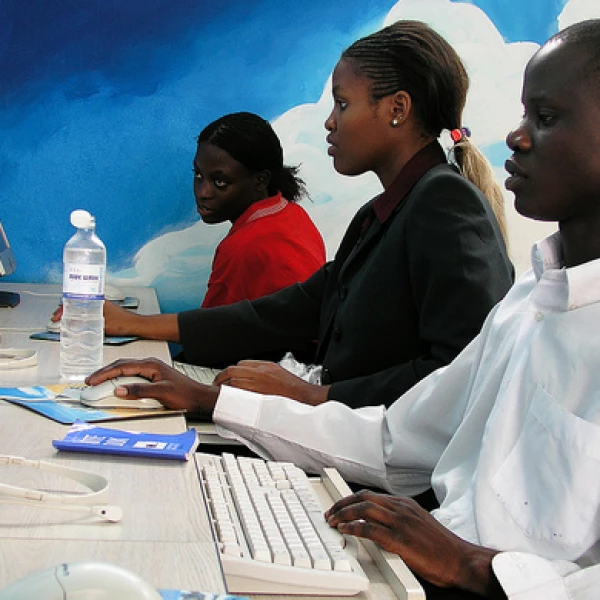Access to digital technology remains a huge challenge in Africa: New Report
The majority of African citizens especially persons with disabilities and underserved communities still lack access to digital technology, a new report highlighting the state of digital rights and inclusion on the continent has revealed.
The 2022 Digital Rights and Inclusion Report dubbed Londa is published by Paradigm Initiative, a pan-African organization that connects underserved young Africans with digital opportunities and ensures the protection of their rights.
According to the report, access to digital opportunities by women and girls including Information Communication Technology (ICT) education requires improvement. The report points out that as much as governments have continued to increase efforts to bridge the digital divide and build digital economies, men have continued to outrank women in various indices, from the adoption and use of ICT tools to employment opportunities
“Despite progress in bridging this divide, men continue to outrank women in various indices, from the adoption and use of ICT tools to employment opportunities. The introduction of prohibitive levies and taxes, which emerged as a common theme in the period under review, further impeded general access, as seen in Ghana, Malawi, and Uganda, amongst others,” the report states.
Speaking after the launch of Londa, the author of the Kenyan report, Ms. Jackie Okello pointed out that Kenya does not have a tangible law that tackles internet access. However, she said the country has a broadband strategy that lays down the government’s plans on how to facilitate broadband access in areas that are not covered by the Internet.
The report also decries the introduction of prohibitive levies and taxes, which emerged as a common theme in the period under review, further impeding general access as seen in Ghana, Malawi, and Uganda.
Regarding the Universal Service Fund (USF), the report mentions that the fund exists in 22 out of 24 countries reported in Zimbabwe, Zambia, Tunisia, Uganda, Togo, The Gambia, Tanzania, Sudan, Rwanda, Nigeria, Malawi, Kenya, Ethiopia, Central African Republic, Benin, South Sudan, Namibia, and Botswana. However, information on the number of funds raised, transparency, and impact varies widely among the 22 countries.
The Londa report also discusses the issues surrounding data privacy and governance and the lack of accountability and oversight mechanisms for digital identification systems. Notably, Nigeria has taken steps towards a better data protection framework by releasing a draft Data Protection Bill, improving the Nigeria Data Protection Regulation.
In contrast, privacy concerns surround the newly introduced Ghana card and e-levy bill, much like its continental counterparts. Out of the 24 countries reported, only 17 have data protection legislation in place, and some have data protection bills with varying levels of progress toward implementation.
While the Central African Republic has no specific data legislation and relies on provisions of existing bills, South Sudan has no data legislation or framework. In the period under review, Ghana was reported by the Media Foundation for West Africa (MFWA) to be the most repressive West African country in the first quarter of 2022, with 11 violations of press freedom recorded, followed by Nigeria with five violations; a concerning development for Ghana with a reasonably exemplary report in Londa 2021.
During the period under review, the Nigerian government also blocked online content and social media platforms directing media groups to stop using Twitter and threatening legal action against Nigerians who accessed the service via circumvention techniques.
Similarly, Angola had challenges with Internet freedom as Internet access remained expensive. Network challenges made it difficult for users to access the Internet without interruptions, especially in rural areas – a common refrain across the continent.
On the other hand, Botswana took a pro-Internet freedom stance with no credible reports of Internet disruptions, government interference, or the use of digital technologies for political repression or social control, while Malawi decriminalized sedition and related offenses.
Londa’s recommendations cover a range of stakeholders, including the private sector, civil society, governments, the media, and academia. By implementing these recommendations and working together, stakeholders can build a strong and sustainable digital environment in Africa where everyone can exercise their rights online.
The report also notes that as emerging technologies like Artificial Intelligence (AI) gain traction, awareness, and adoption are growing on the continent. “Recent developments with AI tools demonstrate not only the potential the technology possesses to accelerate socio-economic growth but also to aggravate existing inequalities.”
This, the report adds, underscores the need for rights-respecting AI frameworks across all sectors. “For a continent where frameworks can be an afterthought and legislation often a knee-jerk reaction, playing catchup must desist. Frameworks and strategies need to be well-intentioned, adequately safeguard human rights, accommodate emerging trends and issues, and be transparently implemented,” it further states.
This forum comes amid suggestions that internet bills continue to be high and unaffordable among many African households, with as many countries not considering it a priority.
Kenya for instance was last year ranked number 106 out of 117 countries when it comes to internet speed, quality, and growth, according to the World Digital Quality of life index 2022 report.
Compared to South Africa, mobile internet in Kenya is 2 times slower while broadband is 3 times slower.
Now experts feel a shift is essential.
“Rolling out infrastructure is difficult and very expensive. We have put in the conditions of licensing and investment from the government. There has been some political will. This includes the Universal Service Fund. We also have one of the most liberated media on the continent,” said Grace Githaiga, the Chief Executive Officer (CEO) and the Convener, KICTANet.
GAROWE ONLINE




